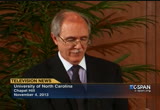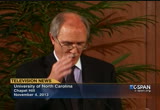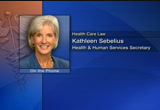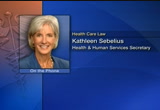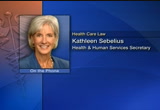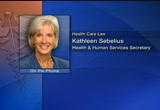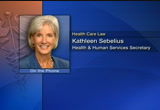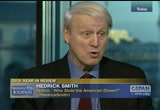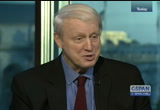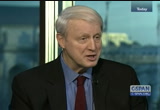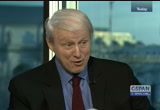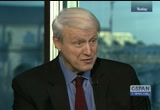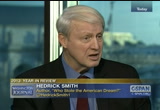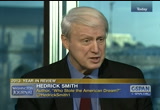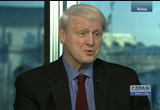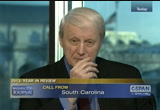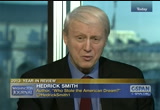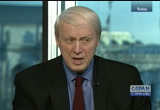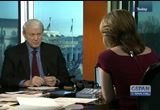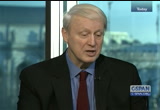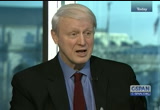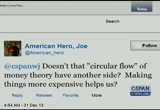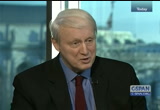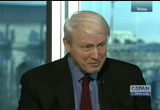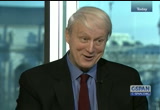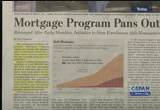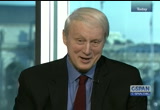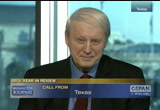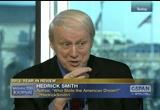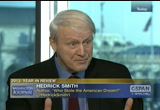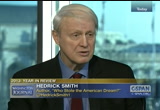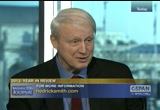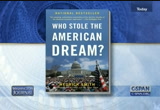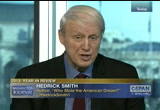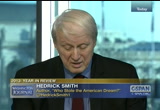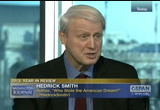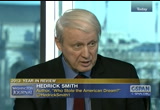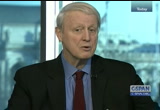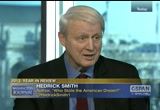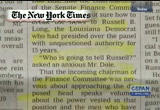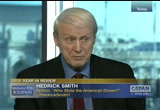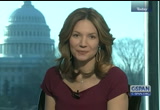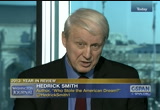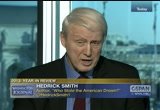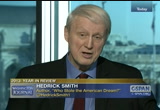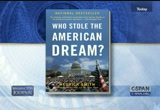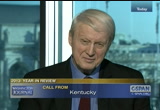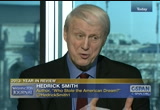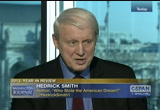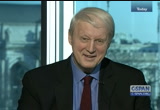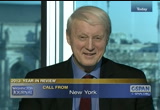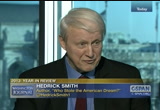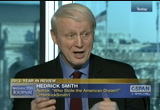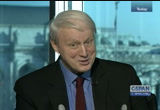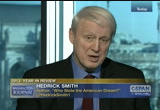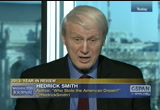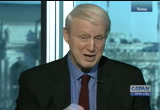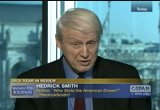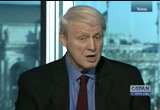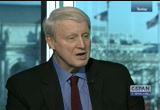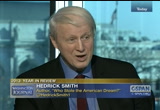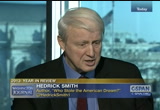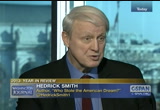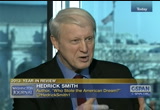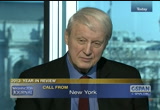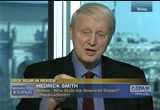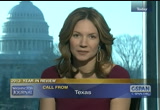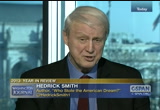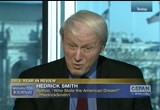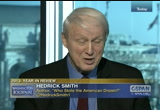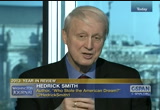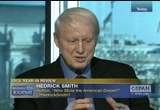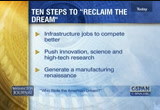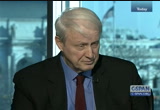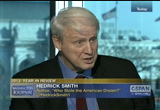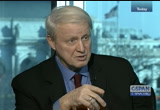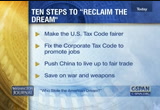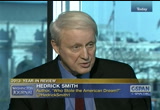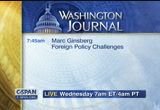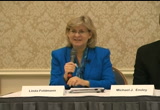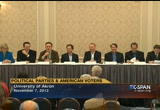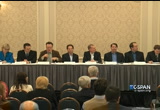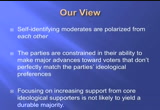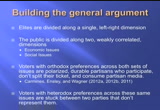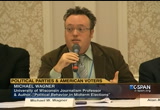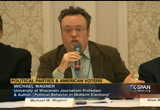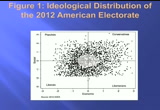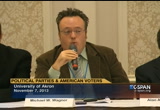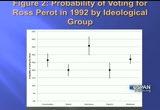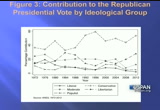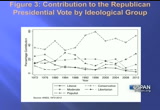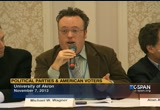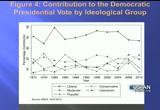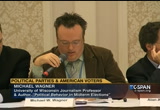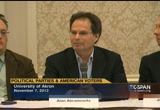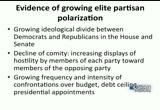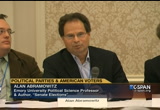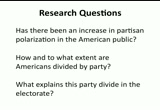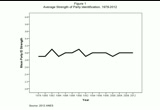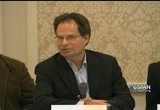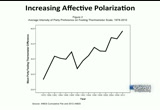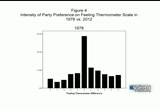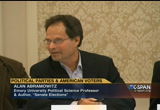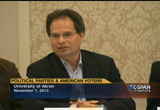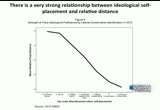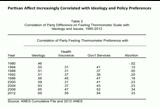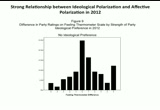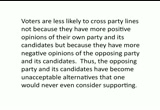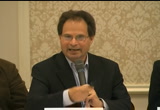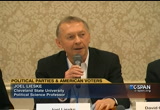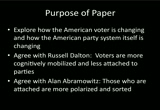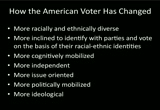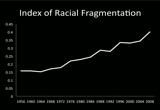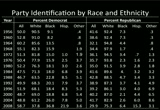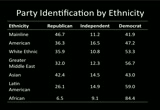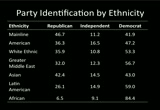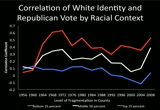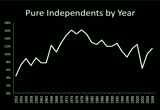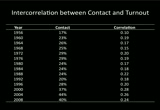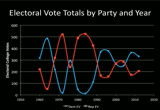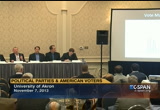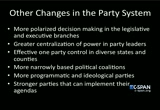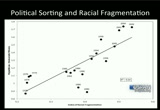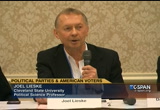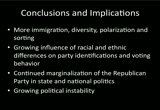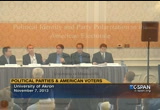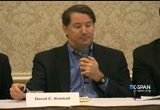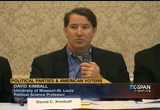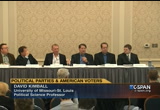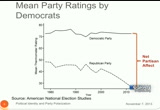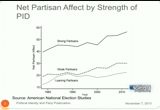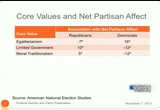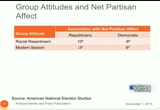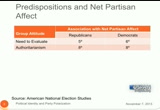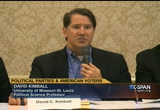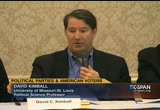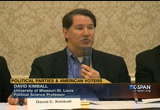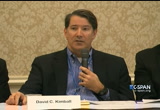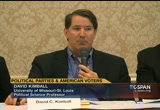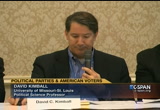tv Key Capitol Hill Hearings CSPAN January 1, 2014 12:05am-2:31am EST
12:05 am
college connections can play a huge role. everyone of the broadcasting greats i mentioned were tied by connections to no one in the trade. they were from north dakota, south dakota, kansas, and montana. brinkley was from north carolina. they are great broadcast journalists. each of you who is a journalism student tonight is receiving and an inestimable gift. it will change over lifetime in ways that will confound all of your elders that are gathered here today. i have a feeling that there is theing, nothing under circumstances that would please dean king, ben sherwood, or more than saint
12:06 am
together in assisted-living from now20-30 years and bragging that we spoke one theing in chapel hill about future of broadcaster was him and, do you know who was in the audience? -- fill in the blank. it was you. youbroadcast future awaits and it will not stop moving and neither should you. that is the way it is. good night and good luck. [applause] a conference call with reporters, kathleen sebelius and onset 2 million americans have
12:07 am
signed up for health insurance through federal and state exchanges. here's part of the remarks. >> good afternoon. thank you all for joining us. an early happy new year. as we wish one another a happy and healthy new year, those words of a renewed meaning in 2014. january 1 be a new day in health care for minds of americans. as i travel around the cou all, i have met people from walks of life who have told me about their new rights and benefits and what that means for their family. how long they have been waiting for the opportunity to obtain quality and affordable health care coverage. most people are priced out of coverage because of pre-existing conditions and tomorrow, those days are coming to an end. i have met moms and dads who have gone a corrupt because of
12:08 am
medical bills will stop starting tomorrow, we will have security. -- medical bills. starting tomorrow, we will have security. starting tomorrow, being a woman when the longer be ia pre- existing condition. i want to give you a brief update on health insurance marketplace. the most recent data through december 28 indicates that more than 2.1 million people have enrolled in a private insurance plan through the marketplace, either the stay based or federal marketplace -- state-based or federal marketplace. they have found coverage in the federal marketplace. additionally, another 3.9 million americans were determined to be eligible for coverage in medicaid or chip. these numbers include medicaid and chip renewals.
12:09 am
we expect those numbers to continue to grow over time. now, recently, i was with a great young man named marcelo, who is a 22-year-old student. he told me about how he been uninsured for months. through a private plan the marketplace that will allow them to get covered for seven dollars a month. marcelo and so many of our friends, families, and neighbors, the rug is that we are making through the affordable care act is transformational. the health insurance plan offered through the market lays -- marketplace are private plans. marcel has choices and competition that was not available under the old system. 6-10 americans may qualify for
12:10 am
for under $100 a month. gotten coverage prior to open enrollment. the new law is transformational for the entire health care system and millions of americans , who finally have health insurance security. the final thought is that we are just halfway through six months of and open enrollment. -- the open enrollment. -- people webst missed the deadline, go to healthcare.gov and find out the options available to you. as we continue to give consumers information to help them understand the marketplace coverage, we are working to ensure that any american who want to enroll in coverage between now and march 31 is able to do so. our message to consumer is this this, we areis
12:11 am
committed to doing everything we can to make the transition as smooth as possible. have regular and ongoing conversations with insurance companies and we have been doing -- talking with pharmacies, hospitals, other stakeholders across a country and we are working to make sure people can access the new benefits. -- cvs andexamples walgreens, two large pharmacy chains, have announced that they are providing short-term transitional coverage to patients who show their enrolled in a plan for the marketplace. as a reminder, any consumer should check directly with their insurance company to make sure that they are enrolled. if you're planning on going to the doctor or pharmacy on january 1 or beyond, you want to make sure that your provider is in your network and that you have your insurance card or a temporary card with you when you go. if you are having trouble are
12:12 am
still having questions, we are here to help. our toll-free hotline is available with trained assistance, 24 hours a day. it is a new day in health care for minds of americans. the desk for millions of americans -- for millions of americans. the most important thing we can do is getting quality health coverage. security and peace of mind comes with that. tokathleen sebelius talking reporters earlier. the supreme court agreed to review physicians of the affordable -- positions in the affordable care act that required able to offer birth control. -- businesses to offer birth control.
12:13 am
journal, thisgton is one hour 15 minutes. host: we are back on the year interview with author hedrick smith. he is the author of "who stole the american dream? " we talk with our readers about their story is for 2013. what is yours? guest: i'm interested in the story which of the biggest impact over time. i think probably the snowden leak story and the nsa will do that. you are to see washington in total turmoil, what to do about the nsa program. that has had a huge impact on washington and will play out in 2014. there are lots of others. gay-rights moved way forward this year. nine more states legalized same- sex marriage. supreme court knocked down the federal defense of marriage act. the syrian chemical weapons ban, nobody ever thought we would be able to ban chemical weapons in syria and stop that. that is amazing. the nuclear agreement with iran, temporary, lots of problems, but
12:14 am
still a breakthrough. people have been working on it for a decade. that is a big story. government shutdown, of course were are interested in that because we are in washington are not really a very big story with long-term impact except the exposure of what each is had on the air a little while ago, john boehner saying are you kidding me? the right wing of the republican party is pushing the republican party in to trouble. to me, one of the biggest stories is a story that never gets a headline and that is the growing income inequality in america. i just saw some figures i came out. over the last decade, the 90% of the american public saw their income go down 10%. and he presented people saw a decline in income over the last decade. the figures are not out for 2013, but the transept and continuing. at the same time the top 0.1% saw their income go up 70%. that is a story that is like grass growing. there is no day in which an event occurs and you can say well, look what happened. this is a trend that is been going on for 30 years. it is had an enormous impact on the american middle class and is
12:15 am
going on today. corporate profits to the roof, stock market at record highs, 20 million people can't find full- time work. huge gap in america. the story of my book. the economic recovery has not brought it back. host: who stole the american dream, who stole it? guest: it is not six guys sitting around with a plot to steal the american dream. it started back in the 1970s. there's a guy named luis paulo said on the supreme court. before that he was a corporate attorney. he saw the power of the middle- class movements, the civil rights movement, the labor movement, the women's movement, the environmental movement. all of them pushing washington policy to help the middle class.
12:16 am
he said business, you're getting taken to the cleaners politically. you better get organized. that is exactly what they did. we have had a power shift over the last 30 or 40 years in america. in favor of business and elites. you can see it in the tax policies that helped the elites, the corporations. you can see it in the minimum wage policy which has not gone up, which is hurting people at the bottom. you can see the decline of the safety net, except for the obama administration's health-care. in the private sector you've seen a shift from an idea that ceos had back in the 50s, 60s, 70s, that they should share the wealth, that the best further grow the economy is to pay a lot of middle-class workers well. if they get paid well and went out and shop at christmas time and thanksgiving on black friday, all year long, that drove the economy to growth. that was the secret of america's growth. as you stagnate american wages, ship jobs overseas, force people of good industrial jobs and working for walmart by retail
12:17 am
store or for a fast food restaurant at lower wages, the middle class has less purchasing power and you don't have the engine to drive the economy. that is what happened to him both in the private sector and the public sector. you have policies from guys like alan greenspan with the federal reserve that didn't protect mortgage owners, didn't protect house owners. we lost $6 trillion. american homeowners last $6 trillion during the housing boom of the 90s and 2000. why? because are being encouraged to take a more and more loans or second mortgages, refinance your home, get 100% financing and 70% of the home ownership in america back in 1988 was in the hands of homeowners. 30% in the hands of the bank. by the end of the lapse it was 30% in that -- i'm sorry, 40% and heads of homeowners and 60% in the hands of banks. a 30% shift from homeowners to banks.
12:18 am
$6 trillion lost money for middle-class people that is a tremendous loss of wealth. host: how to define the american dream, is it home ownership, what is it? guest: there are several themes of course. of rags to riches which is starting at the bottom and making it to the top. there aren't not that many who did that. yet the dream of the immigrants who come from greece, vietnam and other places. the basic middle-class dream, if you go back to the 40s, 50s and 60s and 70s was a steady job, slow rising income over your lifetime as he got more experience, more skills, more value. enough money to buy your own home, a health benefit, a retirement benefit and the hope it your kids would do better than you would. home, job, protection against disaster and a better future for your kids. is a pretty simple basic dream
12:19 am
for most middle-class americans. host: has president obama's agenda over the last five years done anything to reverse what you write about in your book? guest: yes, the one thing that is change that significantly is obamacare. that is the first expansion of the social safety nets since medicare back in the 1960s, the first time the government has taken a step in 40 years to put more protections underneath the middle-class and underneath people who need help. from the disaster fever chronic illness, cancer, or an accident that causes summary trouble. high expense. that is the major change that has happened. the effort to rein in the banks with the financial control regulation is a pretty mixed picture. i would say that is the one thing that has been done that is big. a lot of people don't understand it.
12:20 am
they don't actually understand that there are lots of benefits. just into being protected from an insurance company, canceling your insurance if you give serious disease or denying your insurance because you have a pre-existing condition, that is a huge change in the way insurance companies are going to operate trade is a big protection for anybody who feels healthy but doesn't know they are headed for disaster medically. host: where during the year in review here, but let's look ahead to 2014. what is on the agenda that you think needs to get done, get passed to revert was happened over the last four decades? guest: one of the big things that need to get done is a decision on what to do at the national security agency as a result of the snowden leaks. i don't think there's any question the democrats are going to push on the issue of raising the minimum wage. raising the minimum wage is not just -- by the way, two thirds
12:21 am
of the people who get paid minimum wage are women. they are mostly in the retail trade, some of them in the restaurant trade. it is not just raising the wage of those people who'd that has the effect of raising wages throughout the middle-class. that would be a big thing. whether or not the country is going to invest in its own competitiveness again, that is going to be a critical question. we do need to rebuild the aging warts and airports and railroads that we have very other countries, china, japan, singapore, you name them, all across europe that much more modern ports and railways and we do. we don't compete. u.s. chamber of commerce says we have lots of trillion dollars of growth because we have not modernized our transportation infrastructure. we do bring more jobs back home from mexico and china. there are a whole lot of things we can do in the economic area. the question is, can you do it with a gridlocked congress? host: summerville, south carolina, a democratic caller named trudy is waiting to talk to.
12:22 am
caller: good morning, happy new year. i am one of those lost children of the american society. my mom and dad, god blessed them, they were from the depression era. my dad was in world war ii. they scrimped and saved and they left me a good sum of money. unfortunately, i can't imagine what it would be like to be left in this culture. ever so hard as a graphic designer. we have lost american dream. we went to nafta. we give everything to the poor little chinese people. we got goods for nothing and then why we had to get involved in the middle east. here's my angst, dick cheney, the great american air force, we've been protected twin towers
12:23 am
on 9/11 and we ended up in iraq and wasted our troops. god help us. host: i meant to leave it there. a lot fresher talk about. guest: judy, let me say hello to itself to line up. my family lived long time to feel a connection with you right over the air. i think what you are talking about is what a lot of people feel, which is an angst any concern that this country is somehow gone off-track in a lot of ways. there are people who are saying we are spending way too much on imperial overstretch, on afghanistan, iraq, why build
12:24 am
bridges at kandahar, let's pull them in kansas city and baltimore and charleston and columbia, south carolina. there is a feeling that we should reorient ourselves and bring ourselves back home. i think you are reflecting something even broader than that. that is a feeling of being lost and not quite knowing where to go. that this country has somehow gone off track and a whole lot of ways. there are a lot of people saying the polls show not only is there a low rating for president obama and congress, there is a terrible angst about the political system as a whole. roughly 60% of the people will say, in a poll that i saw just recently, that america is declining and going downhill. you get this expressed in different ways. what underlies it all is this sense that we have lost our way, that we do not have the same kind of strength and direction. that we do not have the sense of solidarity. we are very much to america's today, divided by power, by money, and by ideology.
12:25 am
there was a recent article that you probably had on the air that showed a pattern of red and blue and how different the policies were in each of those states, there was a real sense of division. it is a very difficult job for leadership. for obama, as president, and other political leaders across the country. >> ron tweets in --host: ron tweets in -- host: and then you have this tweet from peg -- guest: i don't think so. in the first place, the problem is not excess labor, the problem is low wages. if you look at what has happened to middle-class workers in america over the last 30 years, from 1978 to 2011, adjusting for inflation, the median hourly wage is exactly the same. in fact, it is just a shade lower.
12:26 am
when you have people stagnating for 30 years, not making more money -- you can say that they kept up with the cost of food, gasoline, or clothing, but the big-ticket items, like health care, college education, going through the roof, middle-class families are borrowing to pay for the most important things in life, when they are that insecure they do not spend money. 70% of what drives the american economy and gets rid of the excess labor is people being paid enough so that they can go out and spend and drive the economy. we have to get back to that. we do not just need to change taxes. we needed growth policy in this country. and an investment policy in the future. education, retraining, investing
12:27 am
in domestic business, helping innovation. there are all kinds of incubation things that have been done and proposed. host: what happened to the higher education system? guest: it is being supported by a huge influx of people from overseas. our higher education system is still highly recognized by people in jordan, singapore, china and around the world. if you look at, for example, the number of engineering, math, or science students, critical skill areas, roughly half of the graduates in america are coming from overseas. the institutions need to students in order to pay their faculty and costs. what is going on is we do not have the good and left system in our junior high schools and high schools to get enough americans well enough qualified to take
12:28 am
more and more of those spaces. the problem is less and higher education than it is in the middle school and high school. when you look at the test scores , we do terribly. there are a few states that do well, like massachusetts and minnesota, but not many. every time someone tries to set some standards that are demanding that will keep us up with singapore, sweden, or denmark, or germany, or france, or australia, or canada, people resist it he does it is tough. they want to pay teachers more money. they are not going to have a good education and will not be a globally competitive country. host: american hero tweets -- guest: it does not make things more expensive. i am afraid i do not follow the logic.
12:29 am
no, it does not make things more expensive. what it does is it generates demand. look at the last three or four years. we have had a very slow recovery. this is our third very slow recovery. each one is longer. back in the 1980s it would take us 18 months, 19 months to come out a recession. here we are, over five years, it is taking longer and longer and the reason is we do not have the purchasing power. people are not going back to work. why is business sitting on two dollar trillion in capital? they are not seeing the demand out there causing them to build more cars, refrigerators, bicycles, microwave ovens, and cell phones. that is the problem. demand is what is missing here. as a matter of fact, when you
12:30 am
get high demand, the cost of goods tends to come down. host: we are talking about 2013, year in review, with pulitzer prize winning author hedrick smith. according to this, "the boring investor one in 2013." they won out over the people like hedge fund investors, with more complex strategies. guest: all i can tell you is that that is good news. the boring investor has been taking it on the chin for a long time. sorry, i do not believe that, entirely. i wish that it were true. the tragedy is that we as average people are not good at investing. if you look at the results of the 401(k) plan, it is a disaster. the median? i bet you could not guess. $18,000. the median 401(k) balance for people in their 60's, on the
12:31 am
verge of retirement, who have been in the system for 20 years, 80 $5,000. now, people live 17 years on average if they retire at 65. $5,000 a year you will get from a kind of saving. it is nowhere near enough. the idea that we are smart enough -- that is what we got sold in the 1980s. do not let your boss set it up, do it yourself, you're smarter. you are not. you are not as smart as the financial advisors. if, truly, the hedge fund guys did not do well and the average investor did well. if so, god bless, that is a great year for america, it will put more money in the hands of people. they will buy more cars, put more additions on their home. 3 million families in your last
12:32 am
segment helped out by the obama administration's mortgage reduction and refinancing program. that is great news, 3 million families that did not get pushed out of their homes. once they are pushed out of their homes they are into job loss and all kinds of downward financial spiral's. saving 3 million families is not just for those people, but for the economy as a whole, a great gain. if the average investor did well, 401(k) did well, it is very important for 2014, boasting better consumer purchasing power, with more corporate investment, equipment, hiring more workers, growth in the economy as a whole. host: there was a story this morning in "the wall street journal" about the president's retirement plan, helping 3 million homeowners, including the ones who owe more than their mortgages are worth, the people
12:33 am
who are still so-called underwater. james, you are on the air. caller: i am a 64-year-old vietnam veteran and would really like to take my hat off to you this morning. to just here playing common sense, common sense. thank you, sir. i want to thank c-span. i waited all year long for clear views. clear facts. we're statistics. thank you. thank you, dr. smith, for the truth. guest: go take a look at that book, "who stole the american dream." you will find a lot more of it." my daughter used to work in memphis for united press many years ago, thank you for the
12:34 am
call from tennessee. host: pat, dallas, texas, independent color, hello. caller: your current speaker is doing a fantastic job. i think that the problem is income inequality. the first president bush was correct when he said economics was rude. since then the middle-class, many millions of americans have not been educated. you hear it on c-span every day. people call in, they do not even think what they talked about. they listen to radio talkshow hosts, and they believe that. they call and they talk about losing our freedom, losing our freedom. america needs to be protected. but we need more jobs. just like the speaker said. we need more construction jobs. we need more manufacturing jobs. but the programs do not allow
12:35 am
that. deficit is ok. it will not affect us right now. but we need to plan to help reduce in the future. if they were cut deficit today, we can grow the economy. china is growing. host: ok. guest: interesting, the question of the deficit. i have been talking around the country, particularly to colleges and state universities, and one of the big questions that people bring up, relating to what that woman was talking about, the extreme debt that they are going to carry out of college into their next life. they are paying higher and higher tuition. why? the state legislature is cutting
12:36 am
the appropriations, going from states to universities. the universities have to make up for that by charging higher tuition. guess what? when you vote against raising taxes today, you pass on the deficit not in the future, but today you pass it onto the next generation in the form of higher tuition and student that. student debt today is one dollar trillion in america. that is crazy. these kids come out of college with an average debt of $26,000. they cannot afford to buy a car. they will start families later, they will buy homes later, they will have more trouble getting financing. this is a damaging thing for the country as a whole, not just those kids. we are not thinking about it intelligently. we have all of this noise about not adding to the deficit, but we are adding to the deficit today by not dealing with it today and in some instances by raising taxes. these kids are stuck. their parents cannot afford to send them. fewer and fewer families can afford college. the next generation, they are the seed for america's
12:37 am
competitiveness and growth in the decades ahead. why would you not invest in that? businesses do. they invest in their future. host: but it appears that there is a demand out there for this education, that these parents and students are going to these expensive schools and trying to pay for it. that they see the value in it. host: if you take a look at who is affording the expensive schools, by and large it is the top five percent of income earners. in america that is 50 million people. but it is maybe the top five percent, 10%. and then you have scholarships, universities and scholarships, i went to one of them, williams college, and i sat on the board of trustees and about or he percent of the kids there are on scholarship. it would not be possible for a lot of middle-class families, nevermind who are families, to
12:38 am
afford a college like that. but there are lots of colleges are closing because they cannot sustain the enrollment. we have community colleges that are very important. all kinds of technical jobs, hospitals, engineering firms, architectural firms, they are crying out for students because the students cannot afford to come. there is a gap year. we see it in income. at the top level, yes, you see harvard, yell, stamford, prestigious universities like that jammed to overflowing with applicants, but you see others early struggling and they are appealing to two very different parts of the population. part of the difficulty is that when you talk about america as if it were one great conglomerate where you could just average the numbers, you get a misleading picture. you and i, if we were sitting in a bar, we have an average income. if bill gates and warren buffett sat down with us, the average
12:39 am
income would go up enormously, it would become so huge, but our income would not change at all. that is the problem with averaging. if you average the numbers it goes all the way down. the bottom 90%, i just gave you those numbers before, the bottom 90% of americans over the last decade saw their income go down on average. the top .01% saw their income go up 71%. unless we address the fact of two americas, we will continue to have slow growth and the kinds of problems we see in our economy today. >> we are talking with frederick smith -- hedrick smith, and author of multiple pieces. he is here with us for about another 30 minutes. keith, new orleans, republican caller, go ahead, you are on the air. >> good morning. happy new year to you all. mr. smith, i wish that she would
12:40 am
get maybe a bit more specific when you get into these generalizations. what is the middle class? up to what? 50,000? 148,000? what is it? what are your numbers? >> let's just take the numbers that are used by the congressional budget office. they break the american population down, down the line. if you take a people making family incomes, 70%, 210 million out of 310 million americans, the top one percent income starts, that is about $390,000 a
12:41 am
year. those are the numbers i am working on. working off of federal statistics, i am taking the kinds of numbers and analysis that the congressional budget office does. they do not call it the middle- class. they call it the middle gradient or the middle levels. they do not talk about the poor or the rich. they use kind of neutral sounding words, but you can read between the lines what they are talking about. those are their numbers and that is what i am talking about. host: "the fed policy has been the main culprit in income disparity. too many dollars, a false economy. guest: there is no question that the federal reserve had a big role in the mortgage blowup. alan greenspan was warned i some of his fellow board members that there was insufficient regulation of the mortgage market.
12:42 am
one board member said in a memo to alan greenspan that it was like the wild west and the fed needed to act as a sheriff, particularly for mortgage loans being given by mortgage companies that were not banks, but the fed technically regulates banks. these people were pushing alan greenspan to do that and he would not do that. he lowered the interest rates way down to one percent, then he started jacking them up very quickly. people who had variable interest rate mortgages got really whipsawed. alan greenspan encouraged them to go into them. he actually encouraged subprime loans. he was behind a lot of the policies that led to a disaster for a lot of middle-class pop families. for those saved by obama's program, there were many who were not, and many of those were on the doorstep of the federal reserve and other regulators.
12:43 am
this gentleman is absolutely right. >> this is the last year for ben bernanke. what do you make of his tenure? >> ben bernanke was a remarkable figure. number one, he missed the blowup when he came in. most people forget that. he was warned that the big banks were into the mortgage market, but he said that if the mortgage market had a problem, it was the loners out there and it would not affect the big banks, but he was wrong about that. in terms of stepping in after the -- after the disaster was over, he really helped to save the financial system that was on the brink of a cliff. >> looking forward to janet yellen possibly becoming the federal reserve chief? >> it looks to me from what she said publicly, it is almost hard to know in advance, but it looks as though she will and he knew his policies, pretty much. number one, she has been part of them.
12:44 am
she has been his number two, voting with ben bernanke on these things. number two, listening to her. she talks as if she is going to continue his policies. that has been to try to stimulate the economy to grow faster and eliminate what the fed can do. there are people who question whether the fed has loaned too much money, this gentleman said tarp money, from the big banks. maybe. but what has not been paid back and what is much less are the trillions and trillions of dollars that have gone to the big banks and almost zero interest from the fed. charging even the federal government one percent to two percent, making money on the fed money, it does not make much sense. host: under what program? guest: this is called the fed's open window. it was open when banks were in trouble. it was trying to lubricate the economy, get the economy going again, protect the financial system. the question is now, do we still
12:45 am
need to be doing that after the collapse? moving too fast can shrink things up. it is tricky. that is one of the things that he has left janet yellen to deal with. host: "the danger is when economic interests formalize into more wealth. oh guest: -- wealth. out guest: -- wealth." guest: we have seen this starting with jimmy carter, believe it or not, but then accelerating under ronald reagan and george w. bush, making huge tax cuts for the wealthy. the wealthy turned around and pour the money into lobbying and into political spending. they have used that in order to promote policies, serving their economic interests. you have a self reinforcing cycle. in washington people tend to think of business and labor tom
12:46 am
a corporations and trade unions as being equal forces in terms of lobbying expenses. guess how much business outspend labor? two to 1, 5 to one, 20 to one? no, 60 to one. guess who gets listened to on capitol hill. host: let me get your take on this "new york times" cover page story this morning. he has this piece -- guest: there is no question that power has been disbursed. guest: there is no question that
12:47 am
power has been disbursed. look at the trouble that john boehner had all through 2013, with his own backbenchers. people call them the tea party, but it is an indication that leadership on capitol hill has a lot more difficulty today than it used to have in shepherding troops together. here you are talking about the part of committee chairmen in the senate, but it is the same kind of thing. but i will say that the republicans have generally shown extremely good discipline. particularly in the senate, they have stuck very much with mitch mcconnell. it has been very difficult for the democrats, very difficult for president obama. the republicans have -- what is interesting is that olympia snowe in maine, susan collins, maine, both moderate, mainstream
12:48 am
republicans, or george rate image from ohio, leaving the senate, when they told the line, it was amazing, they often did not agree with the policies but they were convinced that they had to show party loyalty. the parties of their have become almost tribal in their differences and the chasm that divides them. it is very difficult to get legislation through. there are so many different wickets to get through. bob dole was talking about -- if he knows he can control the wicket, i am the majority leader in the senate, we can get business done. bob dole was a very pragmatic, very effective senate leader. host: baton rouge, louisiana, robert. caller: i had a question for mr. smith. how will government policy be
12:49 am
changed with big money from both parties? will it take more supreme court appointments to overturn citizens united and the money to speech decisions? another quick comment, that's scary statistic that the top 400 people in the world have more than the bottom billion people, the american dream is linked to the rest of the world in terms of developing markets and pressures. please comment, thank you? guest: the walmart founding family has more wealth in america than 120 million americans. we do not need to go overseas to see that. the political questions that you act were very -- asked were very important. it is hard to see how we will fix the economic problems in this country without political reform. political reform will almost certainly have to be the big money in politics. there is no question that there has been an explosion of
12:50 am
financial expenditures. the cost of running for house seat has gone up 20 or 30 times in the last 20 years. we saw the first campaign spend more than a billion dollars. it is just staggering. when you get into independent expenditures you have karl rove, running the crossroads of america, trying to effect some seats in senate elections around the country, the amount of money, the system is awash in money and there is no question that people are not spending it idly. they are counting on being able to talk to the folks that they helped to get elected once in office. they regard that as a good investment. the only way to deal with this is to somehow in some way match the funds of small donors, lots and lots of small donors, so if you give $100 or $200 to a candidate, you match that.
12:51 am
in new york city they match that five to one. the taxpayers will give you a thousand dollars. in order to help the candidate to have trouble raising money get into a imperative race with the people who have lots of money. now, what is interesting with this, the current system has taken the competition out of american politics, by and large. not in the presidential races, but in a lot of the house races across the country. that is partly gerrymandering across the country. parties setting up safe districts so that their candidates can win for sure. they do not want a tight, tough, competitive race. when that happens, voters turn off. voters in the middle, like yourself, turn off. why vote? it will be the extreme or right or extreme left. this is what happens when they get to washington, they cannot talk to each other. we need the independence, the moderates back in.
12:52 am
we will need campaign financial reform, gerrymandering reform. i do not know what is going to happen to citizens united. 15 states have passed legislation or resolutions calling for the overturn of citizens united and calling for constitutional amendment that would empower congress to regulate campaign spending. i do not remember if people in louisiana are doing that, but they are doing it and lots of states around the country, so it is something we are thinking about. host: we are speaking with hedrick smith, phillips are prize-winning author, his latest book is "who stole the american dream." he started in the 1950s, greenville, south carolina. worked for 20 six years for "the new york times," covering several issues. he worked for pbs in 1989,
12:53 am
creating many special primetime programs. he has won emmys. he is our guest here this morning. danville, kentucky, democratic caller, good morning. caller: i wanted to say i love the show. i have three things to ask this morning. why won't the government listen and install a flat tax? especially on these richest people in the united states. giving equal share across-the- board? guest: well, it comes up
12:54 am
periodically, if you mention it. at the moment, tack -- talking taxes on capitol hill is almost impossible. they are not prepared to go anywhere. we could do a lot to reform the corporate tax code. we have companies that move operations and make profits overseas more than anyone in america. why any country would do that is beyond me. it is an invitation to send them -- send jobs overseas. luckily, when these parties try to touch the budget or taxes, they get so snarled they cannot move forward. we have to get past this next set of elections in 2014 and see if it is possible to have rational discussions on taxes, but at the moment it is a hot an issue. it is like the third rail on the subway. you do not ever touch it . that is the attitude of politicians in washington today.
12:55 am
you cannot trust the third rail. some people want to push corporate tax reform, others want to push the flat tax. max baucus, the outgoing senate finance committee chairman, has an idea for changing corporate taxes, what he did not even get a chance to float it, he is moving onto another job and is probably happy to get out of there. host: the front page story from "the new york times" references senator baucus leaving and the next finance committee chairman not having as much clout or authority as the past committee chairman seven had over the years. guest: that is probably true. it also takes time to accumulate that power. what happens is these committees generally start in around 1962, committee chairman have to get set with their members and they run that by bargaining a piece of legislation or another. they do favors for people on their committee and gradually
12:56 am
begin to mold together majority where they can move forward. he has been mostly in the intelligence area, the massive metadata collection program. moving over to finance is a new arena. he has been on the committee, but that is not what he is known for. he will have to build his image. part of that is personal, part of that is institutional change. >> new york, republican line -- host: new york, republican mind -- republican line. david, good morning. caller: happy new year. host: happy new year. caller: something that is getting big and expensive, costing the american people who have no investments in their future except for social security, they have no union plan, as the federal government gets bigger and bigger they are
12:57 am
taking more and more from me to pay taxes so that the federal government can create promises so that when i retire they will give me medical coverage, retirement, social security. to me, now it is very expensive and it does not give me much purchasing power, does not improve my credit rating, it will not get me a house or a car loan. things like this. for me it seems very expensive and i am not getting a lot out of it and it is costing and costing. if i wanted to go back to school to be a part of the middle-class tickets over $100,000 per year, again it will cost me -- i have to get new loans, go back to
12:58 am
school, get into more debt. it does not seem that the federal government sorted it all out and fix the problem. the middle-class, there cannot be a $70,000 or $80,000 gap in the middle class. that is too large for me. it seems too large of a gap. guest: how old are you, david? caller: sorry, the --host: guest: sorry --host: sorry, did not realize you wanted to chat with him. guest: if he is in his 50s it would not be far from medicare. it is interesting about the federal government, some people at the university of cornell did a poll about three years or four years ago, he asked people whether or not they benefited from any federal government program and 96% of the people said they did not benefit from any single government program.
12:59 am
then they went back and asked them a series of detailed question -- questions about federal programs and it turned out that 54% had benefited from two or more programs. a lot of people are benefiting, david may actually be one of them. a lot of people are benefiting and do not even know it. the famous comment during the debate over obamacare where the guy got up at a congressional town meeting and said -- i do not care what you do about health care in this legislation, but keep the government hands off my medicare. he did not even realize that it was a government program. there is a lot of misinformation out there. if david went back to school -- i do not know his circumstances, but if he wanted to go back to school because he was thrown out pentagon that is a government program. doing all kinds of things that are in our economy and our lives that the government has done, but no one set up there and
1:00 am
waved a flag. it sort of gets built in, built into the scenery, the landscape. the government is actually doing a lot more, coming through things that were discovered by the national institutes of health. we do not even think about it, but the technology, the computers that we use, they all came from an arm of the pentagon that is a government program. doing all kinds of things that are in our economy and our lives that the government has done, but no one set up there and waved a flag. i think there may be more to it, david, and i wish you luck. i hope that you do not run out of work and have to go onto unemployment benefits. i hope that you make it to your social security and medicare, that is absolutely critical to
1:01 am
tens of millions of americans today. host: paul is next from indianapolis. caller: mr. smith, do you really think that increasing demand will decrease prices? that is just from your earlier talk. my main point, my main question, i think that the real problem is that we are trying to increase the wages for people who are not in value added jobs. if you give a burger flipper $15 per hour instead of $7.50 per hour, his labor is not as worse. -- is not worth that. you have got to either reduce the profits by $7.50 per hour, or you have got to increase the prices or some combination. the economy is not really helped
1:02 am
by that. if you can increase that person's productivity to the point where they are producing a n extra $7.50 per hour and you can give that to him without hurting anyone, otherwise would you are doing is hurting the small businessman who is a franchisee of mcdonald's. you are not hurting warren buffett at all. you are not increasing debt burden by increasing the federal minimum wage, you're just hurting a successful small businessman who pays the minimum wage. host: let's get a response. guest: my comment about increased demand and lowering prices is to say that they can lower the prices when they have the benefit of mass production. mass production generates more efficiency and therefore they can lower cost. if you're talking about a fancy mercedes-benz car, silk stockings or furs, yes, increased demand is like increasing price, but even then
1:03 am
the price goes up. but let's talk about the minimum wage here. it is really interesting. everyone says, and this is a shibboleth that is repeated again and again, economic statistics do not bear it out even though it sounds simple, that if you increase the minimum wage, the theory is that unemployment will go up but so many businesses will not be able to afford to hire minimum wage. the job market will suffer. number one, there are all kinds of economic studies that show that this is in fact not the case. if you take americans today, the state with one of the highest minimum wage incomes in the country is vermont. take a state with very low minimum wage, the federal minimum wage, like mississippi, they have one of the highest unemployment rates in the country. there is no correlation between
1:04 am
the minimum wage and the employment problem. it is repeated again and again. there is no question that some employers will not be able to make it. but the addition of the additional purchasing power across the board increases the purchasing power in the entire economy, which increases demand and pushes economic growth. that is why increasing the minimum wage is good for everyone overall. there are some people over the short term who will be hurt, that is true, but the effect is totally unknown and to ignore the benefit to the economy as a whole is going to mislead people it is done all the time, particularly by people in business who do not want to raise the minimum wage because it may cut down their salaries. it may leave less for the stockholders. last year, last year caterpillar had a net profit of $4.9 billion. the workers said that they were making so much money that they should be able to share some of the profits with them. you have made money all around
1:05 am
the world, competing globally, i want to share in some of that. caterpillar's management said absolutely not, and they cause the wage freeze. that 4.9 billion dollars went to buy back stock in the company, which the effect of driving up the stock price and the company, leading to executive bonuses. that money could have been spent one way or another, 50-50 between the shareholders in the workers, but management said they wanted it all. that is the kind of managerial decision and business outlook that has dominated the market. it is not universal, but it has dominated the american landscape for the last 10 to 15 years and is one of the reasons we are in a mess today. host: our unions the answer?
1:06 am
we have this tweet -- how did we go from 27%? two less than 7% today? guest: the reason that we went down his manyfold. number one, many moved from the north, which was unionized, heavily unionized, and moved to the south, which was not unionized. they went out of america, to mexico, to china. the workforce that is unionized went down. some of it was delivered management tactics to prevent bargaining power. it is a question, whether or not the middle class can get a fair shake without a voice. individual people cannot bargain with their employers. people today are terrified of speaking up if they think something is wrong in their company, they are afraid they will get fired and not be able to find a new job.
1:07 am
it is difficult to see how people will be better off without unionizing. what is interesting is to hear graduate students at major universities, teaching assistant saying that they are being paid very badly. we are not talking about harsh private sector aggressively political institutions, we are talking about educational institutions, students saying that they have not been paid their value and they figured out that they could not bargain alone with their institutions. some institutions, like new york university, have as many as a thousand graduate students. that is a lot of people who have begun to organize. it is hard for people who are trained with college educations to join a union. people are starting to say -- listen, unless we have a voice to talk to our employers, debate
1:08 am
and negotiate for better terms and conditions, there is a chance. it is interesting to see that happening with people who never would have seen that before. host: let's switch topics. you wrote a number one bestseller based on your years in moscow as a correspondent. what you think of the role of vladimir putin this year, edward snowden, the nsa leaks? guest: i think vladimir putin has been a big disappointment. i wrote a story on perestroika. back then he was the go to guy for western businessmen. he was the guy who was supposed to be modern. former kgb, he spoke german, had worked in east germany. many people thought that he had snuck into west germany and thought that he understood that
1:09 am
russia could not compete unless they joined the world. is he going to be the kgb guy or the go to guy? more and more, the more years he has been in power, he has become more of the kgb guy. the number of killings of russian journalists under vladimir putin is just terrible. people have written exposés. the difficulties over there have risen over time. so, it goes way beyond snowden. way beyond the obama administration trying to negotiate an arms agreement around the world. controlling the russians means you can affect the chinese, indians, maybe even the iranians. he has sort of gone back to that old soviet syndrome, you can
1:10 am
have influence by making trouble. one exception stands out, the syrian chemical weapons agreement. he saw a chance there for himself and russia to have a positive influence by making a deal. and obama actually deserves a lot more credit for that than other people say. his threat to attack syria -- by the way, the launchers of the weapons systems, the chemical weapons systems, are based on the hill in damascus very near the home of bashir al-assad. fewer russians worried about whether he would survive, he would not want american cruise missiles going into targets that were maybe a few miles from his home. it was not just an innocent deal that was made there. but vladimir putin did that and he deserves credit for that.
1:11 am
the problems he will have with sochi, with the security and these bombings in the south of russia, not too far from the caucuses area, he has got a lot of problems there. he has just resorted to classic toughest boss. he is not a communist, which this shows that they were not so much communists, they were tough guys. from 2013, it has not been a good year for vladimir putin, but there have not been good years for him. he did well for himself by putting himself back in power, but that was a tragedy for russia. dmitry medvedev was a very different kind of guy, and -- open to the world, interested in economic reform, interested in fighting corruption, and then vladimir putin came back. i guess you could say that putin has done well because he is in power and has kept someone in power in the ukraine, but in terms of the future of russia i do not think that he offers
1:12 am
much. they still have oil, they still have natural gas, but that is all they have to sell the world. and it is a much richer country than that in terms of its human palate. host: ella is next, democratic caller. caller: good morning, happy new year. host: good morning. caller: we have globalized industrialization, a problem no one is addressing, globalized opportunities overseas, but we do not have globalized unionization. we can do this without trade policy. we should not be trading with a country like bangladesh. the reasons that jobs go there is there are no minimum wage laws, no job labor laws. people are not allowed to collect their wages, like they do here. that is the reason we do not
1:13 am
have a middle class. starting with clinton, a democratic president who sent our jobs down to mexico. democratic and republican presidents both are not addressing this serious problem. guest: there is no question that the problems of labor, environment, and other human rights issues are not being addressed and the issues important to business are being addressed, but you raise the larger point, which is that business has become globalized, but the whole area of regulating business has not. it is not just labor unions. look at the tax situation. you have apple, microsoft, ge, other major american countries, even microsoft, hopscotching around the world, looking for a place with the lowest tax rate. some of them are even combining and letting themselves be bought out to get the irish, dutch, or luxembourg tax rate. it is interesting, global leaders are starting to take a look at this.
1:14 am
the g 20, the largest industrial countries at their last meeting in st. petersburg, they said they need to address the issue of global taxation so that companies cannot shop around the world. it is going to take a while, but you are right, the companies, technology, with the click of a computer mouse they move money around the world much faster than people can figure out how to organize a set of rules that might make it fair for everybody. host: andrew, texas, republican caller. caller: hello there. thank you for c-span. this is one of the most important channels. i wish you could get it out there and tell everyone even more. forgive me if i am asking a redundant question, but your
1:15 am
title is "who stole america?" who did steal the american dream? also, you have not said the words that are clear to me where what it is saying, the government is the solution. yes, i am a reagan republican. government is the problem, not the solution. given that, what do you see? who is close to fixing this? guest: i think that businesses could do a lot to fix this by paying their workers a lot more than they are paying them now. i just gave you an example of the billions in profits in 2012, the last year we have the figures for, with management imposing a wage freeze on workers rather than a profit- sharing program so that workers could share along with stockholders. no, i do not believe the government is the solution. a lot can be done and needs to be done in the private sector.
1:16 am
there needs to be a lot more investment in manufacturing. people on wall street are dying to invest in the american transportation system. roadways, highways, bridges, they are not government guarantees. government seed money, they could do it with private money. if five percent of those jobs needed to be done by government, that kind of combination would be sensible and is being done by all of our competitors around the world. germany has a much better relationship between the private sector and public sector. they do not see each other as enemies. guess what? i do this faster than the market has in the last 25 years. you would think -- by the way, american corporate leaders think that they would be out of
1:17 am
business. those big german companies would not be anywhere. guess what? in the last decade, 2000 2010, we have had policies of keeping five corporate rockets and star, stock markets from soaring through the roof. and then a two dollar trillion surplus, ensuring wealth with the workers. germany still has 21% of its workforce in manufacturing. we have nine percent. manufacturing is the core of a modern economy. these are the best jobs for middle-class workers across the country in any country. and we lost that. we would have thought germany would have been in terrible shape, but they are not. they did better than americans today, exporting, keeping manufacturing jobs.
1:18 am
lots can be done with the private sector. i spoke to a man who used to be the head of siemens and is now the head of all, and he was wasead of alcoa and he talking about the way that they collaborate in germany between the government and the private sector, between management and labor. it is probably anathema to someone like you. but it has paid off. you should take a look at that and see if it would not be smart to take a look at those things. look at general motors and ford, they are now reinvesting in plants in america and they got an agreement from the american auto workers union. those companies cut back on their feet after the recession and they promised to bring jobs back from mexico and china and the union said -- we will do that, we will hold the wages down if you bring the jobs back. collaboration can be done in the private sector. i think the private sector could and should do a lot.
1:19 am
host: in you -- in your book, you take a look at the last four decades. what research and how much research did you do for this book? guest: i spent an entire year reporting and researching and i did not write a word. i spent months writing the first four drafts. these are very difficult issues. this book's hat -- this book has over 1000 footnotes. it has a timeline, you can actually go through and look at the decisions and when they were made. my editor said to me -- you have got to do a timeline. i said i was not just talking about events, i was talking about trends. these are trends. he said i would figure it out. so, i did it. i think it has been very useful. one of the other things he said to me was -- you are describing a very difficult situation. america is in a ditch.
1:20 am
you have to get us out. i said -- hey, my job as a reporter is to call fouls and strikes. you make your own conclusions from it. said, no, this is a dismal picture, you have got to bring is a bright side. finally, i did it. my wife said i had to do it. the last couple of chapters about how we could get out of the ditch, i think we could, i think we can, i appreciated that about the private sector and there is no question that the private sector does a lot, generating a lot of jobs, but so does the government and we need to admit those things on both sides. host: let's take a look at the 10 steps that you talk about in the book. pushing innovation, finds, high- tech research. guest: people do not realize that we are losing our edge in research and development. one of the reasons the
1:21 am
government seed money is not there, the gentleman talked about for the private sector does not do, they don't do it unless they see a quick return and it is long-term gains that give you the jump ahead of others. if you look at our long-term gains, we may, during world war ii, when the government research finance, they got all the dividends. we had radar, computers, televisions, all kinds of technology came from government investment. the government does have to do something. and it is the stimulus that causes it to be invited in all kinds of fields. from health to technology to automobiles. host: make the u.s. tax code fairer. fix the corporate tax code. push china -- >> guest: corporate tax code is very important.
1:22 am
corporations get about $1.2 trillion per year in loopholes. we had 70 or 80 of the major corporations in america, goldman sachs, general electric, pfizer, all kinds of different areas. i mentioned to drugs, finance, and general manufacturing paying zero taxes, even though they made multibillion dollars. that is because of the loopholes. one of the biggest loopholes was moving production overseas, deducting the cost of production , but they do not pay taxes on it, bringing the profits back to america, lobbying washington for a low tax rate. that was the deal in 2005. if companies see that, it is an incentive to move jobs overseas. why would we do that? why not lower the tax rate? listen to this, please, mr.
1:23 am
business. close some of these loopholes. we are penalizing companies doing business in america. that does not make sense, we should help them. but at least it should be the same tax rate as the ones that operate in america. it is a matter of being fair and being smart. host: number six on your 10 steps? pushing china to live up to fair trade. guest: very important, getting the chinese to increase the value of their currency and stopping the human subsidies. people think the reasons that major american corporations are moving jobs to china is low wages. that is what i thought when i started research on this book. i read a lot of people, including craig barrett
1:24 am
-- i get all the transportation . need the tax holiday i get all kinds of benefits from the chinese that i do not get here. some of that is not legal. clinton, bush, or obama has been willing to take the chinese on head-to-head. and there are people in congress to want to do it. one democrat and one republican have said this is crazy. it is crazy. we should do something about this. the wars in iraq and afghanistan -- do know how much it have cost? $1.5 trillion. a figure that when he put together veterans benefits and department homeland security and
1:25 am
intelligence and so forth and the benefits we owe to the families of those who serve for the rest of their lives and the people who have been killed or injured from home, the bill is somewhere between three point $5 trillion and 4.5 chilean dollars. we can argue about whether it is $4.5.5 trillion and trillion. we can argue about it. it would be down from $17 million down to her $2 million. we need to face up to the fact that a huge chunk of the deficit is spending. host: mobilizing the middle class. toughest andthe most essential thing. i cover the civil rights movement in the 1960s. movement. the women's i saw the consumers movement. middle-class movement moves
1:26 am
washington. americans don't believe they have the power to change things. they do. we do. we just need to make up our minds to do it. the longer we say, they are going to wash -- fix it, meaning they will do it, we need to do it. guest: we need to leave it there. of "whomith, author stole the american dream?" host: happy new year. guest: happy new year to you as well. [captions copyright national cable satellite corp. 2014] [captioning performed by national captioning institute] >> on the next "washington ginsgerg looks at foreign-policy challenges in the year ahead.
1:27 am
goldmacher discusses on important political stories. and growing security fears in russia. your e-mails, phone calls, and tweets on c-span. now is a conversation on national parties and the changing electorates. a number of political science professors debate whether local parties are becoming more polarized. the university of akron hosted this event. thank you for having me. it is a great topic. i guess my primary job is to keep everyone within time limits. i'm sure it might be difficult. i read all of their papers and they are all really interesting.
1:28 am
i'm looking for to the next couple of hours. we will begin with my immediate left. edward could not be here. we have with us michael of penn state university and michael wagner of the university of wisconsin. gentlemen, i will let you take it from there. >> good morning. we are delighted to be here. such a great meeting and such a great panel and we thank janet to help us get back and home. to help the c-span audience, i plan to have a 24-hour filibuster and talk until the meeting is over. everyone has interesting things to say with excellent papers. our paper is part of a project that we have been working on dealing with how the way american public opinion is structured react to the way the elite structure of the
1:29 am
preferences and as we begin thinking about the state of the political parties and the futures, we begin looking at some contemporary takes on parties from "the new york times." tom freedom wrote there will be a serious third party candidate with a serious movement big enough to affect the outcome of the election. he followed up and noted a former u.s. comptroller general might be that kind of candidate to ignite the radical center. so the lack of president walker aside, the day after the election, we now entered and
1:30 am
obama re-alignment and it might not last beyond the next presidential election. what strikes us about the way these folks are thinking about american political parties is the expectation is for major dramatic change. people who are looking for that kind of change are going to be waiting a while. we want to try to make three empirical points. the first point is that self identifying moderates are actually in a lot of way polarized from each other. the second is that the parties are constrained in their abilities to make major advances toward voters.
1:31 am
in the way they do not match the preferences, it makes it difficult for the major parties to outflank each other and try to grab these voters. just focusing on your course of voters is not a strategy that is likely to make ever -- either party a viable majority. we begin with evidence from others that congressional elites are divided along a single dimension, a left-right dimension. the public is not so divided but divided along two principal dimensions.
1:32 am
one dealing with questions of moral right and wrong. both have a left-right dimension to them. what are the consequences in the political system when you elites are divided along one dimension and the public is divided along two? we make the argument that there are some folks who have orthodox issue preferences. they are either liberal or conservative on economic and social issues. they behave as though they are divided like members of
1:33 am
congress. these are the folks that are polarized partisans. they make your vote choice early. they consume partisan media. they do not split their tickets when they vote. a larger group might be liberal on one set of issues and conservative on another said of issues. it might the libertarian. folks who are conservative socially might be considered populist. those in the middle might be considered moderates. the folks that particpate less, or more unstable in their partisanship, do not consume partisan media and split their
1:34 am
tickets at a higher rate when they vote. this is the 2012 american national election study. every dot is a person. the further to the left you go, the more liberal you are economically. the y axis is the social dimension. liberals and conservatives are quite obviously polarized from each other. these are the people who are becoming divided in the american electorate and are more likely to participate. a non-trivial size of voters are libertarian in their view. there is a fair amount of people with expressed preferences in the middle. they are all likely to call themselves moderate when asked to place themselves on a standard ideological scale.
1:35 am
if you are conservative economically, you are a moderate. if you are just the opposite, you are a moderate. that makes it difficult for a third-party candidate to corral both of these groups of voters. we argue it will be difficult for a third-party to appeal to these voters who are different from each other. to give a sense of how this might try to operate, we went back to 1992 when ross perot ran as a fairly successful third- party candidate. he came in second in utah and maine in the election. in our groups, where did his support come from?
1:36 am
we engaged in an analysis that we talk about more in the paper. i'll figure provides the predicted top ability that a member of the groups voted for ross perot. we have conservatives around 26% for perot. liberals at 20%. libertarians, over 35%. perot ran as a pro-choice kind of candidate. not surprisingly the libertarian voters were the most likely to support perot. he was giving these voters exactly what they wanted and yet the likelihood a libertarian would cast a vote for perot was only 35%.
1:37 am
the likelihood of a vote wasn't so high. we think it is something we should not worry about too much. this leaves parties with a couple of different options. how do we sustained a durable majority over the long haul? you can imagine they might say we might to try to appeal to folks that have some set of issues where they see things our way. we rely on a formula on a paper to try to estimate how much support candidates get from particular kinds of groups at how much they turn out. those are the key elements of the formula. we applied the same formula to our ideological groups. this shows the percentage of contribution to the vote totals
1:38 am
from 1970 two until 2012. conservatives provide the lion share of support. they have really jumped up in the amount of support they provide for their voters. where else can conservatives -- all republicans go to increase their share to try to become a durable majority? the short answer is libertarians. they have been a larger part of the coalition. they turn out at a higher rate than populist and moderates. there have -- they have been more likely to support the republican party. that is the place where republicans ought to consider
1:39 am
votes. that is not surprising. the economic issues correlate most highly with peoples self purported ideologies and their vote choice. that is perhaps not so surprising. if conservatives have a hard time going after these libertarians, the line goes up and down and it is not a very large group. the republican party might think let's just try to grow our course of voters. if we can be more conservative, then maybe we can win an election. in the analysis, turnout among conservatives is close to 80%. 86% of the conservative vote in 2012 went to romney.
1:40 am
they are not likely to increase their margins very much. moving along to democrats. liberals make up the largest share of democratic vote choice from 1972 until 2012. back on the republican side, the scale is up to 60% here and 50% here. liberals make up a smaller portion of the democrats overall coalition then conservatives make up for the republican coalition, which is something democrats need to keep in mind. liberals are high turnout group. 95% voted for barack obama.
1:41 am
democrats are not going to appeal to that last five percent of liberals. libertarians are more likely to identify or vote with the republican party. moderates seem to be the best option for democrats to make their case in the future as they try to appeal to different kinds of voters. moderates have for -- have been or likely to favor democrats. if i can find in my notes -- moderates have given a majority of their votes to democrats. it was 71% and 60%. the democrats have done a more job of solidifying moderate
1:42 am
support. it is neither of these strategies that get either party above 50%. and given the way these numbers fluctuate, the parties ought not to be confident they can try to flank. republicans tried to appeal on issues.hem on that is a very difficult argument to do when you get 80% support from conservatives. if you're abandoning some of the policy positions of your core group, you risk alienating some of those votes. do they go after the voters and do so in a systematic way?
1:43 am
if they do not, they cannot rely on their own core supporters. we find the state of the parties are highly polarized at the you the level and that leaves parties adrift in a small sea of uncertainty for the future. that is a good point to stop. >> good job. >> ok, alan. >> i am waiting for the -- there we go. i want to thank john and the institute again and the staff for organizing this meeting and for inviting us here. thank you for coming. i will talk to say about a phenomenon i found interesting in recent american electoral
1:44 am
politics and that is polarization in the american electorate. i will start off with the facts. my junior colleagues are always talking about the stylized facts. i will talk about something i think that is happening in american politics. i guess that would fall under stylized facts. i do not think i need to work hard to convince you that that is the case. just in case you're not so sure about that, a few things we have seen that show this trend is happening at the elite level. growing ideological divide between the parties and we have seen evidence of that.
1:45 am
decline of comity. increasing displays a possibility by members of each party toward members of the opposing party. the kind of language that is used on the floor and also when our political leaders talk in just about any for him these days. and the growing frequency of confrontations over the budget and presidential appointments that have been going on with the government shutdown and debt ceiling crisis that we had last month. lots of evidence of that. what about the public? there is some evidence of growing intensity of partisan preferences and partisan conflict among some segments of the public, the kind of people who shop for tea party demonstrations, comparing barack obama to osama bin laden.
1:46 am
the comparisons actually did not start with obama. we saw this when bush was in the white house as well. the comparisons with hitler, not just obama but bush was compared with hitler. i percent that victor on the right to some of my democratic friends and their responses that is true. [laughter] how representative or typical of these folks? people are turning out and demonstrating. has there been an increase in partisan polarization in the american people? what explains the party divide in the american public? we have seen a couple of different answers in the literature of local science. the republic is not more
1:47 am
divided. partisan dollarization has not really increased significantly. the other interesting approach that has been offered by some scholars is there has been an increase of affect of polarization. people's feelings about the party have become more divided. that does not mean the party is more divided the way elites are. i am going to tell you what my findings are going to be. if you do not want to be surprise, close your eyes and cover your ears. everybody warned. there has been substantial increase in affect her
1:48 am
polarization in the american electorate. almost all that is due to negative opinions by partisans of the opposing party. this rise can be explained by an increase in policy and ideological polarization. they are very closely connected with each other. here is a puzzle. on the one hand, visually. look at party identification and tracking over time, measuring the strength of party i.d., go back to the 1970's and it is pretty stable. it is not becoming stronger in the american electorate. on the other hand, party loyalty has increased. party identification is not
1:49 am
getting stronger. we are seeing more loyalty in voting. we are seeing a big increase in party loyalty in voting. 1972 was an amazing year. over 40% of democrats voted for nixon. the recent data are quite striking. in 2012, i am using only the face-to-face interviews. i excluded the internet-based portion. if you use that, it is even higher. there are some differences between the components. very high level of party loyalty
1:50 am
in 2012. we also see a big decline in ticket splitting. we have the lowest rates of ticket splitting in the history. very low ticket splitting there. a lot of strict ticket voting going on. how can we solve this puzzle? one answer may be from looking at this other measure. affect of polarization. if we look at that, over the last 30 years there has been a pretty big increase in the divide between the parties and the difference between the
1:51 am
rating of the parties on the scale. that is almost entirely due to more negative ratings of the opposing party. look at partisans and you find the average rating of their own party has been pretty stable, around 70 degrees on the scale. we give the other party and more and more negative rating. that is why the divide is opening up. this does make a big difference in the distribution on the scale. this is what the distribution look like in 1978. you can see there were a lot of people in the middle in 1978 who rated the parties equally and not very many who strongly preferred one party or another. minus five or plus five means you rated one party higher than the other on the scale. this is what 2012 looks like. there has been a pretty big
1:52 am
change, a lot fewer voters now in the middle. and more who strongly prefer one party to another. another thing we find is that the divide as you go up the scale, and this case i'm measuring a campaign involvement, about half of the electorate, you see the more involved people are more divided with their evaluations to the party. people who care about politics and do the most really like one party a lot better than the other party or really dislike one party than the other party. partisan affects matters. this is a feeling thermometer difference.
1:53 am
this is for 2012. it has a stronger effect than party identification, even though both have a strong effect and that is true for every single election but it has gotten stronger over time. why is this happening? as one of my students wanted to know. i will argue that this growing polarization is largely a result of growing ideological polarization. parties in the electorate are moving apart. we measure ideological difference from the parties lie with placement of the parties on the liberal conservative scale. what you find is that the average distance between voters
1:54 am
and their own party, voters are much further away from the opposing party, further and further away from the opposing party. you can see how that affects the percentage of voters who have a strong preference. it has been going up over time and the percentage who have no preference or a week preference has been going down over time. there is a strong relationship between ideological self placement -- this is not just saying projection. it is very strongly related to where you place yourself on the ideological scale. the correlation is .86%, which is about as close as you can
1:55 am
get. the distance has increased as is the feeling thermometer difference. the trend seems to be moving together. we are seeing the feeling thermometer difference scale is correlated with ideology and with policy preferences. social issues and economic issues are increasing the correlation over time. they are more correlated over time than they were -- [indiscernible] so this is the relationship between the distance and the feeling thermometer difference in 2012. the correlation is .8. how you feel about the parties
1:56 am
is very much a function of your relative distance from the party. when we do a multiple regression analysis and a whole bunch of predictors, the strongest predictor is relative ideological difference from the parties. it kind of overwhelms everything else. there are some other predictors but that is the strongest predictor. if you break the electorate of 2012 down, if you do not refer if you break the electorate of 2012 down, if you do not refer either party, this is what you're feeling thermometer scale looks like. you are in the middle, for the most part. if you have a preference for three plus, this is what you look like. this is about 15% of voters who place themselves in coolly distance from the parties on the ideological scale and this is
1:57 am
how they came out on the party affect scale and they are in the middle. they look like the voters in 1978. almost half of the electorate who rated one party three units closer than the other in ideology and i would call that polarization. conclusions are that parties have been moving apart. democrats moving to the left. republicans moving to the right. it is the growing divide that explains the polarization and there are consequences the voters are less likely to cross party lines. we are getting a declining ticket splitting because of this growing divide between the parties. the opposing party and the
1:58 am
candidates are becoming increasingly unacceptable alternatives. we feel overall about the same but we dislike the other party. one implication is that attacking the opposing party may be the most effective way of energizing one's supporters and attracting donations and turning out the vote. we had one of the most negative campaigns in history in 2012 if you look at the content of the political advertising. it was much more negative overall than 2008 or earlier elections. i think this reflects this shift that we have seen toward increasing negative perceptions of the other party within the american electorate. i think we can expect to see more of the same in the future. those who live in ohio, expect to see more attack ads in 2012.
1:59 am
>> great. thank you, alan. joel? >> thanks, linda. i want to thank john and janet for the wonderful staff for making this conference possible again. it is a conference i look forward to and wish it were held oftener. i was driving home from work and i tuned into the. -- the prarie home companion and i heard garrison keillor give his advice on how to survive in new york. you have to walk fast, dressed in black, and do not look people in the eyes. i need to talk fast. i need to move through my slides rapidly.
2:00 am
2:01 am
we also credit the demographic changes that make up the electorate. we also attribute some of this to the growing on stability of social identities in american politics. we feel be politics of nepotism calls thelliam bishop big sort also has a role. how is the american voter changed? they have become more racially and ethically diverse. the american voter is more ideological and more inclined to identify with the parties based on their racial, ethnic, and religious identities. the american voter is more issue oriented.
2:02 am
i think these are all important changes in the american voter. i want to highlight these changes, the evidence to support these claims. here is a look at the changing racial and ethnic makeup of the united states in 1960. almost 89% of america was white. by 2010, it had declined to about 64% with an increase in the proportion of african- americans, asian-americans, and latino americans. to track this fragmentation of the electorate, we computed an index and this plots the changes over time for respondents in the american national election studies.
2:03 am
also what we did is we stratified this index by response to who lived in very racially diverse counties versus those who lived in homogeneous counties as opposed to those who fell somewhere in between. this gives a breakdown of party notification by race and ethnicity. in 1956, both parties were mostly dependent upon white americans for their support. the democratic party essentially has been the majority party in terms of the proportion of people who identify themselves as democrats. the republicans had been the minority party. what you see is the distribution has changed for the democrats.
2:04 am
36.8% are black. 21.9% are latino. to explore this further, we took the ethnicity question. the good people in michigan started looking at at the city in 1972. since there aren't many changes here in terms of how different ethnic groups line up with the parties, we have combined the data from the 1972 survey to the 2008 surveys. this is a work in progress and we have to update all the results for 2010 to 2012. those americans whose forebears traced her ancestry to the british isles of northern europe.
2:05 am
american a respondents who say what other ethnic group they identify with. about 25% in senses surveys. white ethics traced their ancestry's two central eastern and southern europe. greater middle east is a term by the w bush administration. these are basically muslim countries in north africa and the middle east. the other categories are self explanatory. what is noteworthy is that the only group that can be counted on by republicans by a small plurality are mainline voters. perhaps asian american voters. all the other groups are trending heavily toward the democratic party, including the new immigrant groups.
2:06 am
this shows the effect of different social identities on the presidential vote. what is striking, a sharp increase in the impact of racial identities on the presidential vote. religious identity seems to be waning in influence. social class identities, this is increasing. maybe because of the coalescence between the ratio of identities and family income. here we take a look at the effect of racial context on voting in presidential elections. we find that respondents who are in racially diverse counties are much more likely to vote republican than whites who live
2:07 am
in relatively homogeneous counties. the same thing happens with party identification. whites who live in racially diverse counties a more likely to identify with the republican party than people who live in relatively homogeneous counties. racial context we feel is a factor that affects the racial identities. this graph is here because of a dispute between my good friend alan and russell about whether independence have been growing or not. if you measure independence by the general question do you consider yourself to be a republican or democrat or something else, the proportion has been increasing from about 25% to about 40% in 2008. if you look at pure independents, we see that there has been growing independence up
2:08 am
until about the 1980's. but then after that it has been declining because of lyrical political polarization and partisan sorting. this looks to be the effect of ideology and issues on the presidential vote. the effective ideology has been increasing over time. what you see is economic dissatisfaction is a factor that always hurts the party in power and helps the party out of power. mobilization. this is a fairly interesting table. more americans are being contacted by parties and the presidential candidates and their organizations. this is having an impact on turnout. there is an increased proportion of people who are contacted who
2:09 am
turn out to vote. how does the party system changed? we argue in our paper that there is more electoral volatility than before. we see the emergence of the red and blue state dichotomy with the creation of safe states for the democratic party. we also see lower public approval for both parties in government. let's look at the evidence. this is a plot of vote volatility by party and year. you can see an increase in volatility in the presidential vote with the lyndon johnson landslide and the ronald reagan landslide. after that, you see declining volatility which we attribute to increasing political
2:10 am
polarization and partisan sorting. imagine yourself at the shell game booth and what do you say? what is happening? the electoral vote distribution over the election years from 1960 until the present, that there has been a greater dispersion of electoral vote. this coincides with the party's counting on certain states to deliver electoral votes for winning the presidency. if you take the measure of this dispersion and correlate it with time, you come up with a correlation of about .44, a moderately strong correlation.
2:11 am
when you look at the effects of polarization, they are not good in terms of public approval, executive and legislative performance. the only time a president seems to get over 50% is during the honeymoon. even president obama, his approval rating has fallen to 45% with a 51% disapproval rating. congressional approval rating has fallen to an all-time low. i have tracked the question about the country heading in the right versus wrong direction. americans feel we are heading in the wrong direction. other changes in the party system, i do not have time to go through these changes. these are discussed elsewhere and will be brought up another panels that had been scheduled for this conference.
2:12 am
i would like to get what is behind these changes. the increase in direct by mary's primaries that are dominated by conservative ideologues. what ed and i feel is the changes can be attributed to our growing diversity and income inequality and perhaps to the politics of ethnic nepotism and competition. let me take a look at the impact of racial fragmentation on political sorting. we have plotted the data, taking the census data and using the measure of partisan sorting between republicans and democrats. a very strong correlation of about .8. you find much the same thing with inequality and partisan sorting. a very strong correlation of about .8.
2:13 am
when you look at the effects of fragmentation on political polarization, slightly smaller relation but still a strong one. the same thing holds true when you look at the effects of income and inequality on political polarization. the other factor, what else is possibly responsible? political science is a relatively -- there is a dearth of good theories. behavioralism and rational actor theory are not theories in of themselves. what might explain this? a sociologist has argued that there is ethic competition. a political scientist from finland studied politics in india argues it is because of
2:14 am
ethnic nepotism. ethnic nepotism is a human trait that we all tend to favor members of our own ethnic group. this leads to social inequality, cultural conflict, and partisan sorting. this shows that sorting has been going on since the founding period. this shows my plot of americans regional changing subcultures and each can be linked to a major settler or immigrant. final conclusions and implications, the jury is still out. we anticipate continued levels of immigration which make the u.s. more diverse, more polarized, and more sordid.
2:15 am
we also see the growing influence on party differences. finally, we see a continuing political instability. thank you. >> thank you. next up is david from the university of missouri st. louis. >> thank you very much, linda. and thank you to john and janet and the university of akron to invite us here. let me acknowledge my co- partisans here, who worked on this with me even though i'm the one doing the talking here. ok. the papers on this panel tend to emphasize the dark side of polarization. i will start with something more positive.
2:16 am
this shows data from the american national election studies. the percentage of people who say they care about who wins the presidential election. the percentage of people who say they see important differences between the major parties and the percentage of people who correctly respond that the republican party is the more conservative political party. they are at or near the high point in the 2012 cycle. there is some evidence the elite polarization has helped to produce a more engaged electorate. that is the bright side. turning to the dark side, we examine a lot of the same data
2:17 am
as in alan's paper of the major parties. this reprises is a figure from his presentation. the main movement has been a decline in the ratings for the opposite party. we are interested in this gap between the rating from one's own party minus the rating for the opposite party and there is a variation across individuals in this. this gap has grown over time. those are the things we want to try to explain. our general argument is there are many sources of this, one having to do with strength of party identity and another having to do with the core values. also individual predispositions and the rise of partisan media.
2:18 am
i will go through each of those in turn. i will start by offering -- joel mentioned the partisanship over the past few decades and we offer a somewhat different answer to alan's puzzle about why it is held steady over the last few decades and party loyalty among voters has transpired. we think part of the explanation is it has remained steady. parts of identity have been activated more intensely in recent years than the past. there are a series of studies that show when people are merely informed on a particular issue at the level of politicians
2:19 am
divide along party lines, they engage in a series of biases. this is called motivated reasoning. we interpret events and seek out information in ways to make our own party look good and make the other party look bad. when people are exposed to elite level polarization, they tend to rely more on party cues. they tend to be more certain about their opinions and they tend to dislike the opposite party more. the elite always issue has increased the salience of party identification. the chart here shows that gap and the thermometer ratings are leading the way. the gap between strong partisans and weak partisans and independent leaders has gone from about 20 points or 20
2:20 am
degrees to about 25 or 30 points in the latest cycle. we also looked at core values as another source of the affect of polarization. this dovetails well with the ideological polarization that alan was talking about. we look at three -- the next three tables are data from 2012. what we did in each of these cases for each of these attitudes, we control the strength of partisanship and ideology and we look at what happens when you move from low values to relatively high values on each of these attitudes. how does that affect upper down on average? one core value is egalitarianism, the belief that
2:21 am
people should be treated fairly no matter who they are. for democrats, those who are high, that is about 16 degrees more than democrats, who are low. for republicans, is a liberal value. a cross pressures them because it does not correspond to their partisanship and it tends to lessen the end. limited government, moral traditionalism dealing with how big it will government should play in providing a safety net and dealing with orthodox versus progressive views on moral standards and family values. those factors tend to polarize republicans and reduce among democrats.
2:22 am
one important thing is that each of these core values have become more closely associated with party identification and ideology over the last few decades and is attributed to the growing dislike for the opposite party. we also look at a couple of group-based attitudes dealing with race and the role of women and racial resentment has been a common measure in the survey that measures the belief that lack of work ethic accounts for the inequalities between black and white americans. that is another attitude that is become more closely associated with partisanship and ideology. it becomes more polarized in terms of the feeling thermometer measure. less so for democrats. we also examined modern sexism
2:23 am
scale, which measures the degree to which people think discrimination against women is still occurring and needs to be rectified. that is on the high end of the scale. the low end is people more resistant to the changing of the gender roles in society. higher values polarize democrats. lesser affect among republicans. we also examined a couple of predispositions, maybe traits or worldviews. there are measures in the survey as well. the need to evaluate is a psychological measure that indicates how judgmental one is our one's propensity to write something as a good thing or a bad thing. sort of like cnn is invited to do.
2:24 am
we also examine authoritarianism worldview dealing with whether you value conformity and order. the authoritarian worldview is whether you value freedom or creativity. it is measured by child-rearing parties, such as whether it is more important for children to be independent or protect their elders. to be obedient or self-reliant. mark hetherington has written a book about authoritarian polarization and partisanship. we think that is not quite the whole story.
2:25 am
the key part of this worldview is that people high in authoritarianism value order and conformity. they tend to see the world in black and white terms. they are more likely to make distinctions between their in group and the outgroup or opposite party opposed to their views. we think people high in authoritarianism, democrats or republicans, are more likely to denigrate the opposite articles to we find some evidence of that among both democrats and republicans. these are pre-decisions. i do not think there is much evidence they have changed over time. this does not account for the growing polarization, whereas i think core values lineup more with party and ideology over time. the final factor we looked at is media exposure, particularly the
2:26 am
rise of partisan media over the last 10, 15 years. the survey includes a bunch of new items and asks people whether they regularly consume a whole host of tv programs, radio, talk radio, newspapers, websites. i think there were 19 we identified as conservative sources, 19 we identified as liberal. we also have a general news exposure item based on questions about, how frequently do you follow the news on television or radio? these have a lesser effect. one is conservative media exposure among republicans. it has a polarizing effect somewhat on par with some of the previous items we have looked at. exposure to partisan media, at least according to the survey measures, is very low. the typical republican voter is not a regular consumer of any of the the 19 included conservative media sources.
2:27 am
the same with democrats. the rise of partisan media may not be as much of a contributor to the polarization we have looked at. we considered some of the consequences for this growing polarization in current politics. we looked at some data from the 2010 evaluation, the government and society study in 2010. we looked at attitudes toward the tea parties. looking at support for the tea party, we found the strongest predictor of tea party support is basically how much you dislike democrats, controlling for other things other studies have looked at. one way to understand the tea party is, tea partiers tend to be folks who dislike democrats
2:28 am
the most. dislike of the opposite party has grown substantially over the past couple of decades. that means there is more of a market for the tea party today than there was maybe 20 years ago. there may be a market for a tea party-like movement or organization on the democratic side as well. obviously, the negativity is maybe unnecessary, but not sufficient for that type of movement to take root. we also looked at the question, an open ended question, and asked what the tea party stands for. democrats and tea party supporters tend to offer more substantive answers, focused on economic themes. democrats and non-supporters tended to mention their general image along with adjectives and descriptive nouns to did not have any policy concept but were largely negative. [laughter]
2:29 am
the survey in october of 2010 also had some questions about, how do you feel about the direction of the country and how things are moving in the country? how afraid, how worried, how outraged? did that create emotion about the country? we found the biggest predictor of that item is how much people dislike the democrats. in october 2010, you still had president obama in the white house and democratic majorities in the house and senate. when a party finds itself in the opposition across the board at the national government, there is this well of negativity, anger, and fear that can be mobilized. to summarize real quick, as alan already mentioned, there is this growing demonization of the opposite party taking place. we think there are many routes,
2:30 am
many sources for this development, and the reasons people are increasingly likely to hold negative feelings about the opposite party. this growth in negativity means there is this growing reserve of fear, anger, and distrust among the public that the ted cruzes and alan graysons around the world can mine for political profit. i was talking about the paper about partisan warriors in congress. i think at the mass level, the people these partisan warriors may be responding to are the folks who dislike the opposite party the most. there are political opportunities here. the downside is if politicians are taking their signals from that segment of the public, which says, we do not like the opposite party. we do not want to to compromise with them at all. that contributes to the crisis overhe
114 Views
IN COLLECTIONS
CSPAN Television Archive
Television Archive  Television Archive News Search Service
Television Archive News Search Service  The Chin Grimes TV News Archive
The Chin Grimes TV News Archive 
Uploaded by TV Archive on

 Live Music Archive
Live Music Archive Librivox Free Audio
Librivox Free Audio Metropolitan Museum
Metropolitan Museum Cleveland Museum of Art
Cleveland Museum of Art Internet Arcade
Internet Arcade Console Living Room
Console Living Room Books to Borrow
Books to Borrow Open Library
Open Library TV News
TV News Understanding 9/11
Understanding 9/11